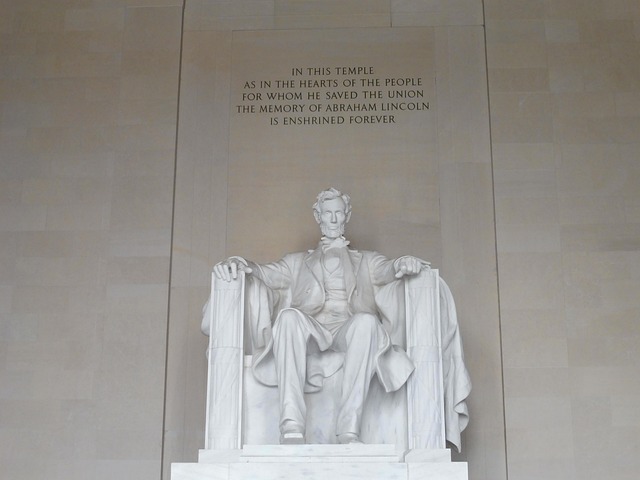Abraham occupies a central position in the religious imagination of three major world faiths. As a figure who bridges the ancient Near East and modern theological discourse, his narrative has been interpreted, reinterpreted, and celebrated across centuries. While the basic outline of his life remains consistent—a call from the divine, a journey of faith, the promise of a great nation—each tradition highlights distinctive aspects that reflect its own worldview and theological priorities.
Historical Context and Early Sources
The earliest textual attestations of Abraham arise in the Hebrew Bible, particularly in the book of Genesis. Archaeological evidence suggests that the cultural milieu in which the Abrahamic story developed included the Amorite, Hittite, and early Israelite societies. Scholars note that the narrative combines motifs of covenant, hospitality, and sacrifice that were common among Semitic peoples. The figure of Abraham, therefore, is both a specific individual and a symbolic representation of early covenantal thinking.
Abraham in the Hebrew Tradition
In Judaism, Abraham is the first patriarch and the progenitor of the covenantal people. The covenant, established with Abraham, introduces the concepts of monotheism, moral obligation, and the special relationship between God and the chosen nation. The biblical passage where Abraham is asked to sacrifice his son Isaac—though ultimately stopped—underscores the tension between obedience and compassion, themes that permeate Jewish liturgy and ethics.
- Monotheistic foundation: The declaration that there is only one God.
- Promise of land: The covenantal promise of Canaan to Abraham’s descendants.
- Family covenant: The institution of the covenantal relationship through lineage.
Abraham in Christian Theology
Christianity inherited the Abrahamic narrative and reinterprets it through the lens of the New Covenant. In the New Testament, Abraham is cited as an exemplar of faith. The apostle Paul, in Romans, connects Abraham’s faith with justification, suggesting that belief in God’s promises predates the written law. Furthermore, the Christian typology sees the act of sacrifice—especially the sacrificial lamb in the Passover—foretelling the ultimate sacrifice of Christ.
“For we hold that a person is justified by faith apart from works” (Romans 3:28).
Abraham in Islamic Faith
Islam regards Abraham, known as Ibrahim, as a prophet and a model of submission to God’s will. The Quran recounts his dialogues with his father, his vision of the future city, and his willingness to sacrifice his son, a narrative that mirrors the biblical account but is framed differently. In Islamic thought, the name “Abraham” embodies the virtue of being a “builder” (the term Ibrahim implies “one who builds a house of God”).
- Prophetic lineage: Abraham’s sons, Isaac and Ishmael, as forebears of two major peoples.
- Muslim rituals: The pilgrimage to Mecca (Hajj) commemorates the construction of the Kaaba by Abraham and his son.
- Ethical paradigm: Abraham’s unwavering trust in God’s plan.
Abraham’s Legacy in Other Faiths
Beyond the Abrahamic religions, Abraham’s story has resonated with smaller faith communities and spiritual movements. The Bahá’í Faith, for instance, regards him as a prophet whose mission is to unify humanity. Various indigenous traditions have incorporated Abrahamic motifs to articulate their own cosmologies. These adaptations illustrate the fluidity of religious narratives when they encounter new cultural settings.
The Concept of Covenant and Faith
Central to Abraham’s narrative is the idea of covenant—a solemn agreement between the divine and humanity. In Jewish tradition, the covenant includes circumcision as a physical sign of commitment. Christianity interprets the covenant as a promise of salvation, mediated through Christ. In Islam, the covenant is a broader promise of moral law and community life. Across these interpretations, Abraham remains a symbol of faith that transcends ritual and law.
Abraham as a Model of Worship
Abraham’s relationship with the divine is frequently portrayed as a direct, personal dialogue. His willingness to leave home, to travel vast distances, and to trust God’s guidance sets a pattern for believers. In liturgical practice, stories of Abraham’s hospitality toward strangers, his readiness to offer sacrifice, and his enduring patience are invoked to encourage moral conduct and communal solidarity.
Scholarly Debates and Critical Perspectives
Academic studies often question the historicity of the Abraham narrative, proposing that it may be a composite of multiple tribal legends. Textual criticism reveals variations in the Hebrew Bible that suggest editorial layers. Despite such debates, the theological significance of Abraham endures, as the story continues to be a touchstone for identity, ethical reflection, and interfaith dialogue.
Abraham’s Relevance in Contemporary Religious Discourse
In an age of rapid cultural exchange and religious pluralism, Abraham’s story serves as a bridge between faiths. Interfaith initiatives frequently highlight shared commitments to monotheism, justice, and covenantal responsibility. By focusing on common narratives, religious leaders can foster mutual respect while acknowledging theological distinctiveness. The figure of Abraham thus remains a focal point for exploring shared heritage and divergent paths.
Conclusion: The Enduring Significance of Abraham
Abraham’s narrative has evolved from a foundational myth to a living tradition that informs belief, practice, and interfaith engagement. His life encapsulates the human quest for meaning, the struggle to balance obedience with compassion, and the promise of communal continuity. Whether read as scripture, allegory, or historical narrative, Abraham continues to inspire a sense of shared destiny among billions. The enduring presence of Abraham in religious thought underscores the power of narrative to shape collective identity across time and culture.




